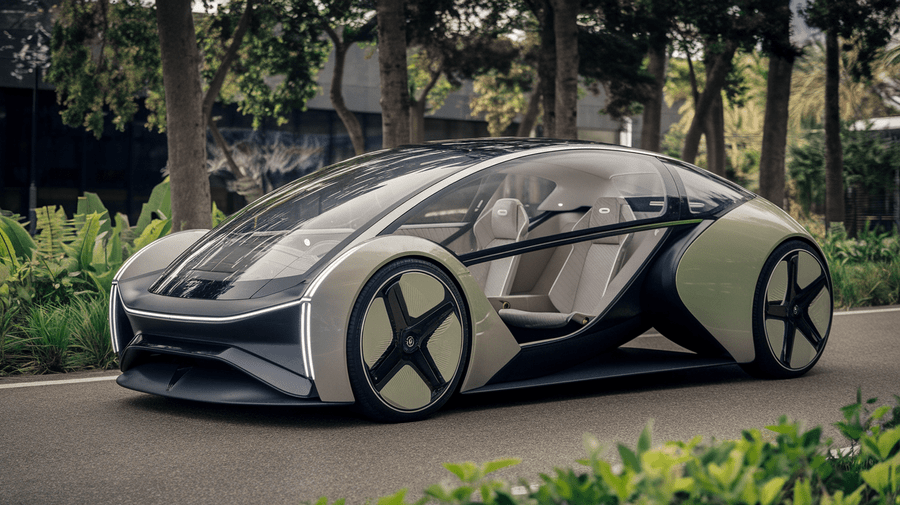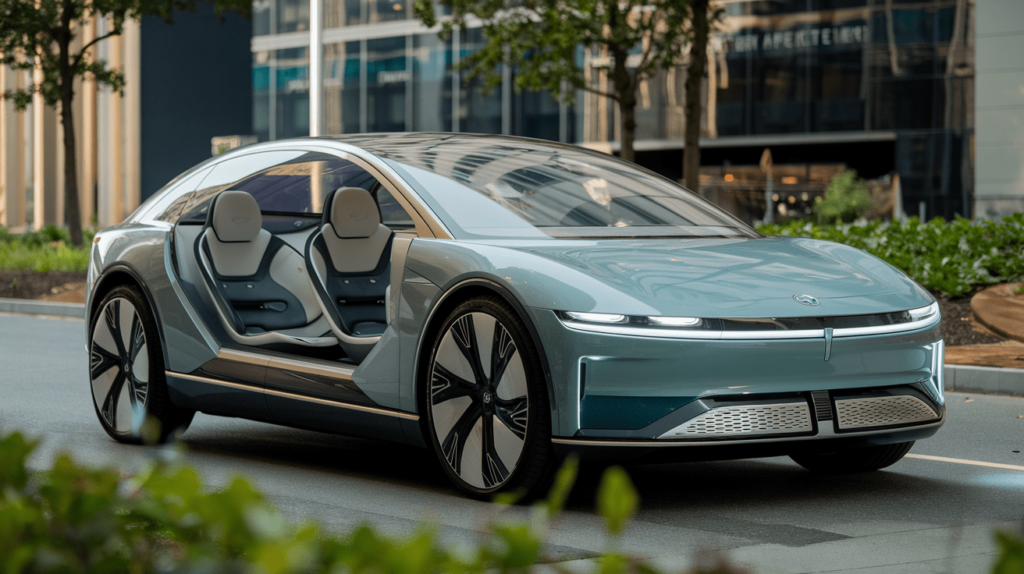
Introduction
The automotive industry is undergoing a seismic shift, driven by technological innovation, sustainability concerns, and the rapid advancement of electric vehicles (EVs). At the heart of this transformation lies Project Re Car, a groundbreaking initiative that seeks to redefine the future of automobiles. This project is not just about making cars more efficient but reimagining how we think about mobility, transportation, and sustainability.
The Vision Behind Project Re Car
Project Re Car is a forward-thinking initiative aimed at developing vehicles that are more than just modes of transportation. Its focus is on creating a circular economy within the automotive industry, where resources are used and reused sustainably. This project aims to reduce waste, cut down on emissions, and ensure that vehicles are built with minimal environmental impact.
Circular Economy and Project Re Car
A circular economy is a system that focuses on reusing resources, as opposed to the traditional model of “take, make, and dispose.” In the context of Project Re Car, this means that materials used in manufacturing the vehicles can be recycled, repurposed, or reused at the end of their life cycle. This approach drastically reduces the environmental footprint of cars.

Sustainability at the Core
Sustainability is the driving force behind Project Re Car. By focusing on reducing the need for new materials and promoting recycling, the project aims to make the entire lifecycle of a car more environmentally friendly. This includes everything from the manufacturing process to the disposal or repurposing of parts when the vehicle is no longer in use.
Embracing Electric Vehicle Technology
One of the cornerstones of Project Re Car is its emphasis on electric vehicles (EVs). With the global shift towards reducing carbon emissions, EVs are seen as the future of mobility. Project Re Car is focused on developing EVs that are not only energy-efficient but also built with materials that can be easily recycled or repurposed.
Reducing Emissions
By promoting the use of EVs and sustainable materials, Project Re Car directly contributes to the reduction of emissions in the automotive industry. Traditional internal combustion engines are notorious for their carbon output, but by replacing these with electric motors and focusing on renewable energy, Project Re Car is leading the charge in creating a cleaner future.
Reimagining Car Ownership
Project Re Car is also rethinking the way we view car ownership. With the rise of car-sharing platforms and ride-hailing services, many people are moving away from the traditional model of owning a car. This shift fits perfectly within the goals of Project Re Car, as fewer vehicles on the road can lead to a significant reduction in waste and resource consumption.
The Role of Autonomous Vehicles
Autonomous vehicles are another key component of Project Re Car. The project envisions a future where cars are not only electric but also self-driving. This would not only improve efficiency but also reduce the number of accidents and traffic jams, contributing to a more sustainable and safer future.

Lightweight Materials
One of the ways Project Re Car is looking to improve efficiency is by using lightweight materials in vehicle construction. Lighter vehicles consume less energy, whether it’s from a battery or a traditional fuel source. Project Re Car is investing heavily in the development of materials that are both light and strong, ensuring that safety is not compromised.
Recycling Batteries
A major concern with the rise of electric vehicles is the disposal of used batteries. Project Re Car addresses this issue by developing new ways to recycle batteries. Instead of ending up in a landfill, old batteries can be repurposed for other uses, further contributing to the circular economy that Project Re Car promotes.
Reducing Waste in Manufacturing
The manufacturing process is often one of the most wasteful stages in a car’s lifecycle. Project Re Car seeks to minimize this waste by streamlining production and ensuring that all materials used can be recycled or repurposed. This now not simplest reduces the environmental effect but also lowers the cost of manufacturing.
Collaboration with Tech Giants
Project Re Car is not working in isolation. It is collaborating with some of the biggest names in technology to develop innovative solutions for the automotive industry. By working with companies that specialize in artificial intelligence, battery technology, and renewable energy, Project Re Car is pushing the boundaries of what’s possible in the realm of sustainable mobility.
Reducing the Need for Rare Earth Metals
The production of electric vehicles often relies on rare earth metals, which can be difficult and environmentally damaging to extract. Project Re Car is exploring alternative materials and methods that reduce the reliance on these scarce resources, ensuring that the transition to electric vehicles is sustainable in the long run.
Local Manufacturing Hubs
One of the ways Project Re Car is reducing its environmental footprint is by promoting the development of local manufacturing hubs. By producing vehicles closer to where they will be sold and used, the project can reduce the emissions associated with shipping and logistics, making the entire process more efficient.
Innovations in Car Design
The design of cars is also evolving under Project Re Car. Designers are not only focused on making vehicles look modern and sleek but also ensuring that they are aerodynamically efficient. This reduces drag and improves energy efficiency, contributing to the overall sustainability goals of the project.
The Impact on Urban Mobility
Project Re Car has the potential to completely transform urban mobility. By promoting electric and autonomous vehicles, as well as ride-sharing services, it aims to reduce traffic congestion and make cities more livable. Cleaner air, fewer cars, and more efficient public transport could all become a reality thanks to Project Re Car.
The Role of Governments
Governments play a crucial role in the success of Project Re Car. Policies that encourage the adoption of electric vehicles, invest in renewable energy infrastructure, and promote sustainable manufacturing practices are essential for the project’s long-term success. Many countries are already taking steps in this direction, and Project Re Car is poised to benefit from these policy shifts.
Challenges Ahead
While the vision of Project Re Car is ambitious, there are significant challenges to overcome. One of the biggest hurdles is the cost of developing and implementing the new technologies required for sustainable cars. Additionally, widespread adoption of electric and autonomous vehicles will require major infrastructure changes, such as charging stations and road designs.
Consumer Adoption
Another challenge for Project Re Car is convincing consumers to embrace new modes of transportation. Many people are still hesitant to adopt electric vehicles due to concerns about range, cost, and charging infrastructure. Project Re-Car aims to address these concerns by making electric vehicles more affordable and convenient to use.
Education and Awareness
For Project Re Car to succeed, it’s essential to educate the public about the benefits of sustainable vehicles. The project is investing in campaigns to raise awareness about the environmental impact of traditional cars and the advantages of electric and autonomous vehicles.
Job Creation and Economic Impact
Project Re Car is not just about sustainability; it’s also about creating new jobs and boosting the economy. By investing in new technologies and manufacturing processes, the project has the potential to create thousands of jobs in the automotive and tech sectors. Additionally, the shift to electric vehicles could lead to new business opportunities in areas such as battery recycling and renewable energy.
The Role of Startups
Startups are playing a crucial role in the development of new technologies for Project Re Car. These companies are often more agile and innovative than larger corporations, allowing them to develop cutting-edge solutions quickly. Project Re-Car is actively partnering with startups to push the boundaries of what’s possible in the automotive industry.
Focus on Affordability
One of the goals of Project Re Car is to make sustainable vehicles affordable for everyone. By reducing production costs and promoting the use of recycled materials, the project aims to ensure that electric and autonomous vehicles are accessible to a wide range of consumers, not just the wealthy.
Reducing Noise Pollution
Electric vehicles are much quieter than traditional cars, which has the potential to significantly reduce noise pollution in urban areas. Project Re Car is working to develop vehicles that are not only environmentally friendly but also contribute to a more peaceful and enjoyable urban environment.
Smart Charging Solutions
A key aspect of Project Re Car is the development of smart charging solutions for electric vehicles. These systems will allow cars to charge more efficiently, using renewable energy whenever possible. By integrating with the power grid, Project Re-Car vehicles will be able to charge during off-peak hours, further reducing their environmental impact.
Advances in Battery Technology
Battery technology is at the heart of Project Re-Car. The project is investing heavily in research to develop batteries that are not only more efficient but also longer-lasting and easier to recycle. This is crucial for the widespread adoption of electric vehicles, as current battery technology still has some limitations.
Redefining Performance
Performance is often associated with speed and power, but Project Re Car is redefining what performance means in the automotive industry. The project is focused on creating vehicles that are efficient, safe, and environmentally friendly. While speed and power are still important, they are no longer the only measures of a vehicle’s performance.
The Future of Public Transport
Project Re Car is not just focused on personal vehicles. The project is also exploring ways to make public transport more sustainable. This includes the development of electric buses and trains, as well as the integration of autonomous technology into public transport systems.

Expanding Renewable Energy Use
To truly reduce the environmental impact of electric vehicles, they need to be powered by renewable energy. Project Re Car is working closely with energy companies to ensure that its vehicles can be charged using solar, wind, or hydroelectric power, making the entire system as green as possible.
Global Impact
The vision of Project Re Car is not limited to one country or region. The project has the potential to revolutionize transportation on a global scale. By promoting sustainable vehicles and reducing emissions, Project Re Car could play a significant role in addressing global climate change.
conclusion
Project Re Car is leading the way toward a new era of mobility. With its focus on sustainability, innovation, and efficiency, the project is poised to revolutionize the automotive industry. As the world moves towards a greener future, Project Re Car stands as a beacon of what’s possible when technology and sustainability come together.



